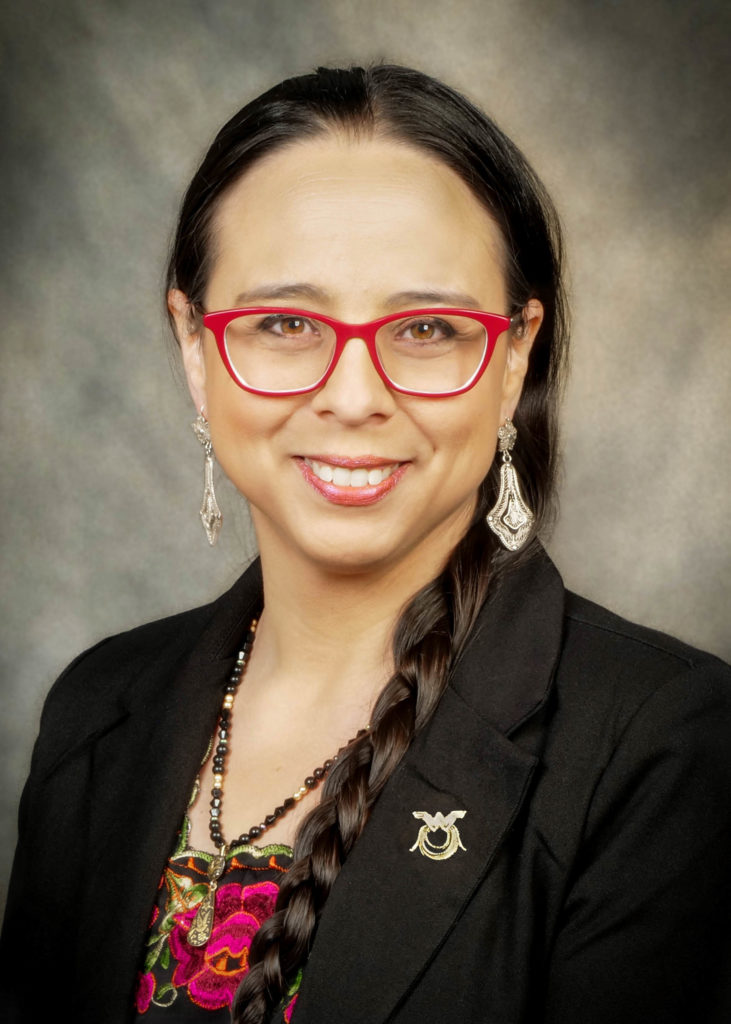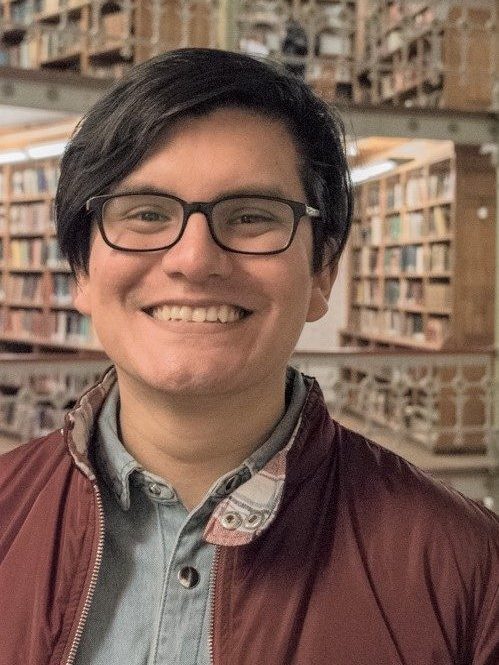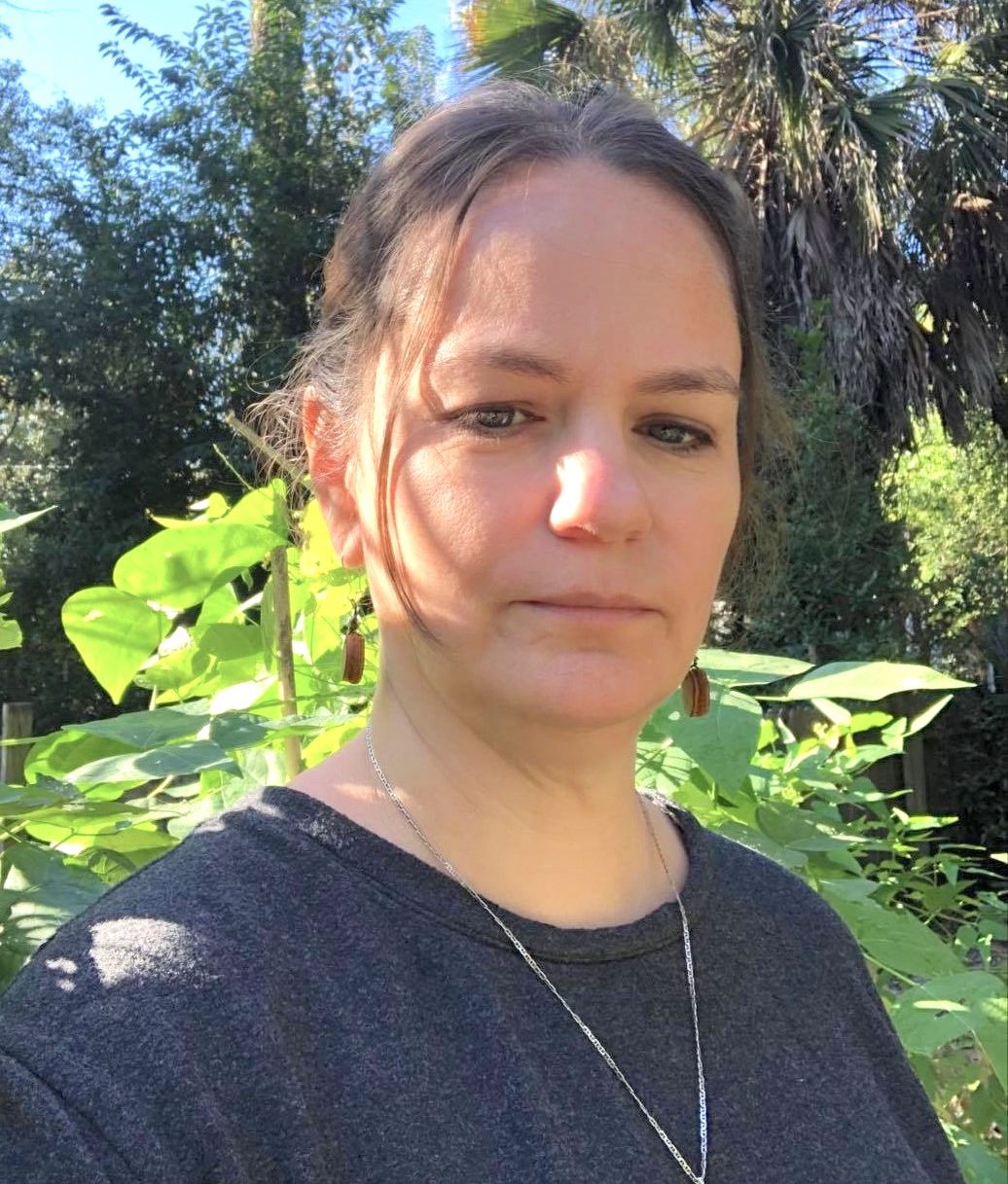Melinda González, born in Newark, New Jersey with ancestral home in Moca, Puerto Rico, is an Afro-Indigenous scholar-activist-poet of Puerto Rican descent. She is a socio-cultural anthropologist, focused on environmental anthropology, whose work maps how disaster is differentially distributed across race, class, and gender. She brings decolonial and indigenous research methods to the study of new media technologies in environmental justice studies. González believes in academic social justice, starting with providing graduate students and contingent faculty with livable wages and access to free medical and mental health care.
D. Kofi Mensah is a medical and cultural anthropologist interested in the social and behavioral aspects of mental health and drug addiction. My research looks at the influence of social dynamics and social structures on mental healthcare systems from a critical medical anthropology perspective. He conducts research in Ghana and the United States.
Beatriz Reyes-Foster is a mestiza scholar and researcher. A cultural and medical anthropologist, her research examines the intersections of health, medicine, and society in a variety of different settings and regions, particularly the ways in which these intersections reproduce health disparities and social inequality. Her research foci include mental health, reproduction, coloniality, and gender. Reyes-Foster has written about coloniality, identity, indigenous personhood and self, cultural constructions of health and illness, and the connections between religion, spiritual beliefs, and biomedicine. You can find her tweeting on @BeatriAnthro.
Erica Hua Fletcher is a postdoctoral fellow at the University of California, Los Angeles/Veterans Administration’s Center for Excellence in Veteran Resilience and Recovery. Her training is in the medical humanities, with a focus on psychiatric anthropology and social medicine. Her past research investigated contemporary mental health social movements and their impact on public mental health care in the United States, with a special focus on peer-staffed crisis respite centers. Her current research considers the adaptation of a psychiatric service user/survivor-led support group approach at the VA with Veterans who hear voices or have other unusual experiences. She served as AMHIG co-chair from 2018-2021.
Brittany Franck is a PhD candidate in sociocultural anthropology with a concentration in medical anthropology at the University of Arizona. Her research interests center on how experiences of mental disorders and chronicity are shaped by health care institutions, cultural understandings of illness and recovery, and pharmaceutical practices. Her current project concerns how adults living with borderline personality disorder conceptualize and work towards recovery in their everyday lives. Brittany’s previous research explored women’s experiences of reproductive trauma in Ethiopia. Brittany received her master’s in International Development and Global Health Affairs at the University of Denver.
Gerpha Gerlin is a medical anthropology PhD/MPH student & Science in Human Culture Cluster Fellow at Northwestern University. She works on issues related to psychiatric dis-ease and disablement, identity development, knowledge-production economies, and implementation science. Her dissertation will work at the interface of behavioral health and criminal justice systems, exploring treatment of and for people deemed at a pathologized risk of “committing” suicide. Her multi-sited project will critically engage aspects and consequences of custodial care for psychiatric consumers, survivors, and ex-patients who have lost (or “forfeited”), and are trying to recover, the ability to participate fully and freely in the world.
Dr. Tamara Turner (Max Planck Institute for Human Development) is an interdisciplinary anthropologist and ethnomusicologist working at the intersection of psychological and medical anthropology, sound/music studies, affect/emotion and expressive arts. She is particularly engaged with relationships between the arts and mental-emotional health, race, religion, and postcolonialism in North Africa and its diasporas. Her award-winning doctoral thesis was the first ethnomusicological research to thoroughly document the musical repertoire, practice, and history of Algerian diwan, a nocturnal trance ritual of the Bilaliyya Sufi Order that emerged out of the trans-Saharan slave trade.
Julio Villa-Palomino is a Peruvian Anthropology Ph.D. Candidate at the University of North Carolina, Chapel Hill. He earned his B.A. and Licenciatura in Sociology from the Pontificia Universidad Catolica del Peru, and M.A. in Latin American Studies from the University of Florida. He is interested in care, psychiatry, mental health, and surveillance. His dissertation project follows and analyzes the process of deinstitutionalization in Peru and the state’s attempts of making a ‘community’ for the Community Mental Health model that is currently being implemented. His research has been funded by the National Science Foundation, the Wenner-Gren Foundation, and the Society for Psychological Anthropology.
Shelly Yankovskyy is an Assistant Professor of Anthropology at Valdosta State University (VSU). She teaches courses in Anthropology, Sociology, as well as in the Native American and Indigenous Studies program at VSU. She received her PhD in Anthropology from the University of Tennessee, in Knoxville, Tennessee. Much of her research has focused on medical anthropology, specifically the political-economic dimensions of the mental health system in post-socialist Ukraine. She has conducted research in Ukraine, as well as the United States. Other research interests include topics relating to Food, Environment, Religion, Health and Healing, as well as the cultural and social forces that shape suffering.
Dr. Rebecca J. Lester is Professor of Anthropology at Washington University in St. Louis with research interests in mental health, gender and sexuality, and religion. She is also a practicing psychotherapist specializing in eating disorders, trauma, personality disorders, mood disorders, and gender/sexuality issues. Her most recent book, Famished: Eating Disorders and Failed Care in America (2019) was awarded a Victor Turner Prize for Ethnographic Writing. She is currently Editor-in-Chief of the journal Culture, Medicine, and Psychiatry and past-president of the Society for Psychological Anthropology.










